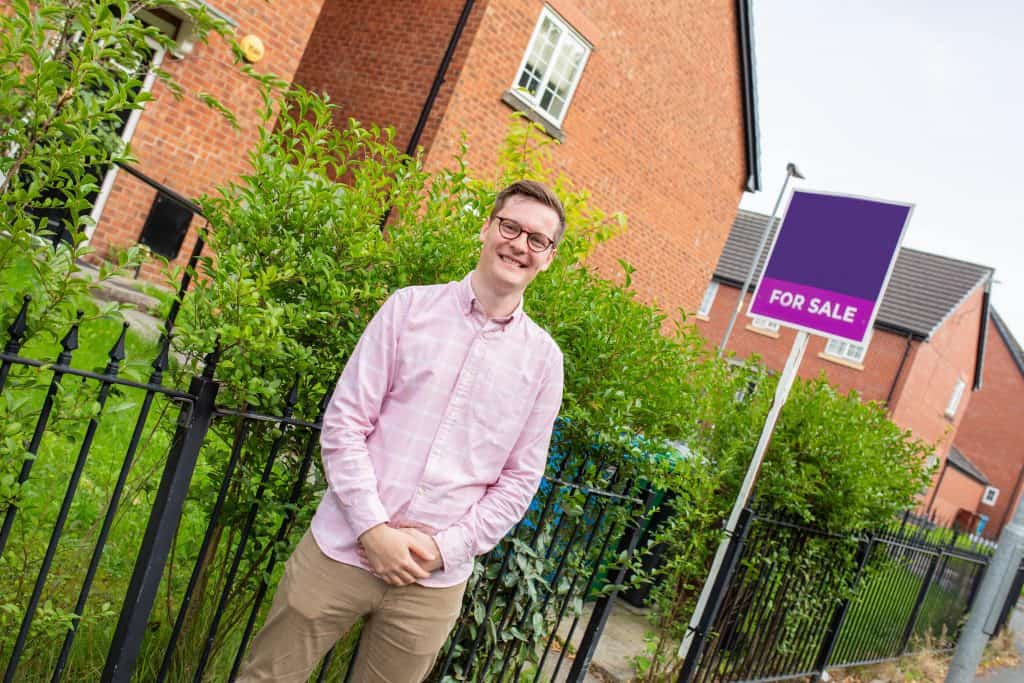Help to Buy Equity Loan
Home > Mortgage Broker Manchester > Help to Buy Equity Loan
Help to Buy Equity Loan
This page describes almost everything that you need to know about using the help to buy equity loan scheme to buy your first home.
- What is the help to buy equity loan?
- Who qualifies for the help to buy scheme?
- What properties qualify for help to buy equity loan?
- Do you pay interest on the equity loan?
- Do you have to pay the loan back?
- How do you repay the help to buy equity loan?
- Should I wait five years to pay the loan back?
- Is the help to buy equity loan a good scheme?
- How does the equity loan affect getting a mortgage?
- Can I use the help to buy equity loan and a help to buy ISA or LISA?
What is the help to buy equity loan?
The help to buy equity loan is a way of funding a deposit when buying a house. The funds to purchase the house will be made up of the help to buy equity loan, money that you borrow on a mortgage, and cash deposits that you put down.
Outside of London you can use the equity loan to fund 20% of the purchase price. You need a minimum of a 5% deposit in cash, and the remaining 75% of the purchase price can be funded by a mortgage. The equity loan can be for 40% in London.
For example, if you buy a house for £200,000 you would put down a 5% deposit of £10,000, use a 20% equity loan of £40,000, and take a 75% mortgage of £150,000.
The loan is in the form of equity, not cash. This means that as the value of your home changes, so will the amount of the loan. If your £200,000 house goes up in value by 10% to £220,000, your 20% equity loan balance will go up proportionately, from £40,000 to £48,000. This is how the government make more from the scheme. What, you didn’t think they were doing it just to be kind did you?

Who qualifies for the help to buy scheme?
To qualify for the scheme, you must be a first time buyer. If you are buying with somebody else you both need to be first time buyers. Your household income must be below £80,000 per year.
You need to pass an affordability assessment with the help to buy scheme as well as a suitable mortgage lender.
What properties qualify for help to buy equity loan?
The property must be a new build bought from a registered developer. Since 2021 there have also been price caps on what properties can qualify for help to buy. In the North West the maximum purchase price is £224,400.
Region | Maximum property |
North East | £186,100 |
North West | £224,400 |
Yorkshire and | £228,100 |
East Midlands | £261,900 |
West Midlands | £255,600 |
East of England | £407,400 |
London | £600,000 |
South East | £437,600 |
South West | £349,000 |
Not all new builds are in the scheme, even if they fall within the limits above. Check with the developer or see what is available here.
Do you pay interest on the equity loan?
Yes, but not right away.
For the first five years you won’t pay any interest on the help to buy loan. You will pay a £1 per month management fee though.
From year six you will begin to pay interest on the loan each month. You won’t make repayments on the loan, you will just pay interest. This will only happen if you haven’t repaid the loan in this time.
From year six you will pay an interest rate of 1.75% on the value of the equity loan. Remember, the loan may be bigger now than when you first took it out. It increased with the value of your home.
In the previous example we took a £40,000 equity loan on a £200,000 house. Let’s say the property’s value increases 10% to £220,000. The amount you now owe on the equity loan is £44,000, which is still 20% of the value. Remember, the loan is in the form of equity, no cash.
So if at year six you owe £44,000, at 1.75% you would pay £770 per year in interest, which is £65 per month.
The interest rate will increase by inflation plus 2% each year. This will quickly become a large monthly expense if you do not repay the loan.
Do you have to pay the loan back?
Yes, you have to repay the loan. When you repay the loan is up to you. But remember, the longer you leave it, the longer the property may increase in value, and the more you may have to repay.

How do you repay the help to buy equity loan?
There are a few ways to pay back the equity loan.
You could borrow more money from your mortgage lender to pay off the loan. You will need to demonstrate that you can afford to take on a larger mortgage, and meet their rules about maximum loan to value limits.
The more equity you have in the property the easier this will be. You can gain equity quicker by having a shorter mortgage term, or making over payments.
Relying on the property to increase in value is a double-edged sword as it will increase the equity you have, but it will also increase the size of the equity loan.
You could also achieve the above by remortgaging to another lender if your lender cannot help you.
Ultimately you could pay off the loan by selling the house. You can’t take the loan with you so this will substantially reduce the deposit you have when buying your next home.
Should I wait five years to pay the loan back?
You can do, but I wouldn’t. In five years the value of the loan could be much larger. However, if you are able to pay it off after two years you could save yourself a lot of money.
To make sure you have the best opportunity of paying it off as soon as possible you can go for a short two year fixed period at the start of your mortgage. This means that in two years you will have the opportunity to remortgage and pay off the loan without being tied to your initial lender, who may not help you, when others would.
It may be tempting to fix for five years as that’s the initial period of the help to buy loan. This reduces your options and could cost you a lot of money if it means you miss an opportunity to pay off the equity loan sooner.
Is the help to buy equity loan a good scheme?
Yes, if it suits you. Just because you can doesn’t mean you should. So consider if the property is right for you.
If you can buy the house without using the scheme I think that you should. If you don’t have a large enough deposit, and most new builds require a 15% deposit though there are some 10% deposit mortgages available for them, then you should consider it.
But don’t use it for the sake of it. If a perfectly good 2 or 3 bed property that suits your needs is available without using this scheme, but you could get a 4 bed detached using help to buy, consider if you truly want the extra cost of the loan.
It might feel like free money now, but it won’t when you have to pay it off.
If not using the scheme means you simply wouldn’t be able to get a house that suits your needs, then absolutely you should be considering this scheme.
How does the equity loan affect getting a mortgage?
The mortgage affordability will be slightly reduced as they account for the payments you will need to make in five years time.
If you have a 5% deposit and a 20% equity loan you will only require a 75% mortgage. This represents a lower risk to the lender than a 90% mortgage for example, so they usually offer lower rates.
Not every lender offers mortgages for the help to buy scheme. A mortgage broker will be able to point you in the right direction as there are a lot of things you should consider when arranging your first mortgage.

Can I use the help to buy equity loan and a help to buy ISA or LISA?
Yes, absolutely.
Why Jamie Thompson Mortgages
- Making professional advice accessible
- Flexibility to suit your schedule
- Simplifying big decisions
- Reliable, friendly, professional
